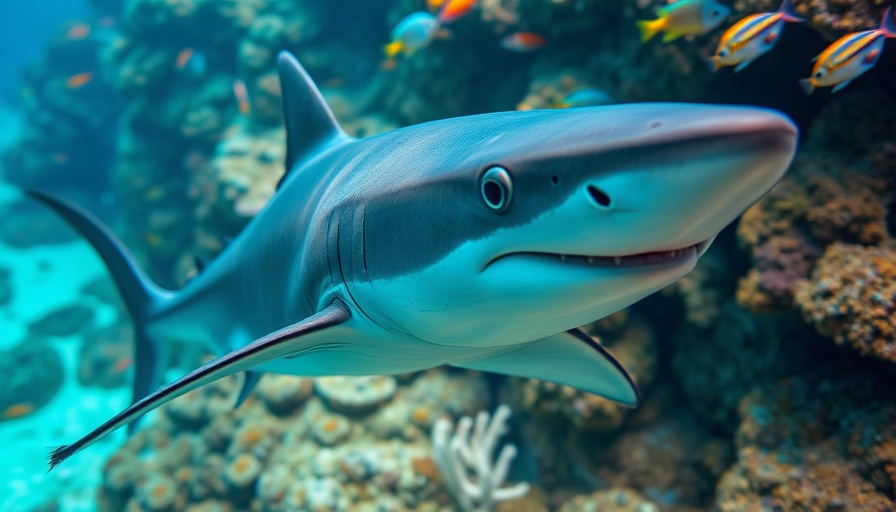
Shark Attacks in 2025: More Common Than You Think
Even as we enjoy the sun, sand, and surf, the shadow of shark attacks looms over beachgoers more than we might like to admit. The year 2023 saw 69 unprovoked strikes on humans, with the United States being a hotspot. Yet, while alarming, the odds remain remarkably in our favor, with chances of an attack totaling around 1 in 11.5 million according to the Florida Museum.
Climate Change: A Catalyst for Human-Shark Encounters
The relationship between rising ocean temperatures and increased shark attacks cannot be ignored. Sharks are moving closer to shore as they seek out warmer waters and the prey that inhabit them, largely driven by climate change. As we stray further into their habitat engaged in recreational activities, the likelihood of encounters naturally escalates. A notable event on February 3, 2025, claimed the life of a teenage girl off the coast of Australia—a tragic reminder of the inherent dangers in ocean swimming.
Lessons from Recent Attacks
The gruesome injury of a Canadian woman attempting a photo op with a shark in Turks and Caicos highlights the need for awareness and respect in nature. Authorities now discourage practices like feeding sharks that exacerbate human-wildlife conflicts. As public interest in sharks and ocean sports peaks, understanding their behavior is critical for safety and conservation.
Finding a Balance: Safety and Conservation
The debate continues regarding the management of shark populations and their habitats. Experts like Dr. Vincent Raoult point out our environmental responsibilities as humans. With shark numbers dwindling due to overfishing and habitat destruction, implementing innovative solutions such as non-lethal alternatives—smart drumlines and drones—could help manage beaches safely without decimating shark populations.
As we navigate this complex relationship, it’s essential to remember: while the thrill of the ocean is calling, we must tread carefully. Striking a balance between safety and the conservation of these vital predators is crucial for maintaining the health of our oceans.
 Add Row
Add Row  Add
Add 



 Add Row
Add Row  Add
Add 

Write A Comment